Home » Behind the numbers: Ending school violence and bullying
Behind the numbers: Ending school violence and bullying
Abstract
Almost one in three students (32%) has been bullied by their peers at school at least once in the last month. In all regions except Europe and North America, physical bullying is the most common and sexual bullying is the second most common type of bullying. In Europe and North America, psychological bullying is the most common type of bullying. Cyberbullying affects as many as one in ten children. More than one in three students (36%) has been involved in a physical fight with another student and almost one in three (32.4%) has been physically attacked at least once in the past year. Information about sexual violence perpetrated by peers is limited but evidence from sub-Saharan Africa suggests that a schoolmate is more likely to be the perpetrator than a teacher, especially for boys.
Globally, physical violence perpetrated by teachers is uncommon but, in some countries, children report high levels of physical violence at the hands of their teachers. Corporal punishment, which is a form of physical violence, is still allowed in schools in 68 countries and is frequently used in many of these countries.
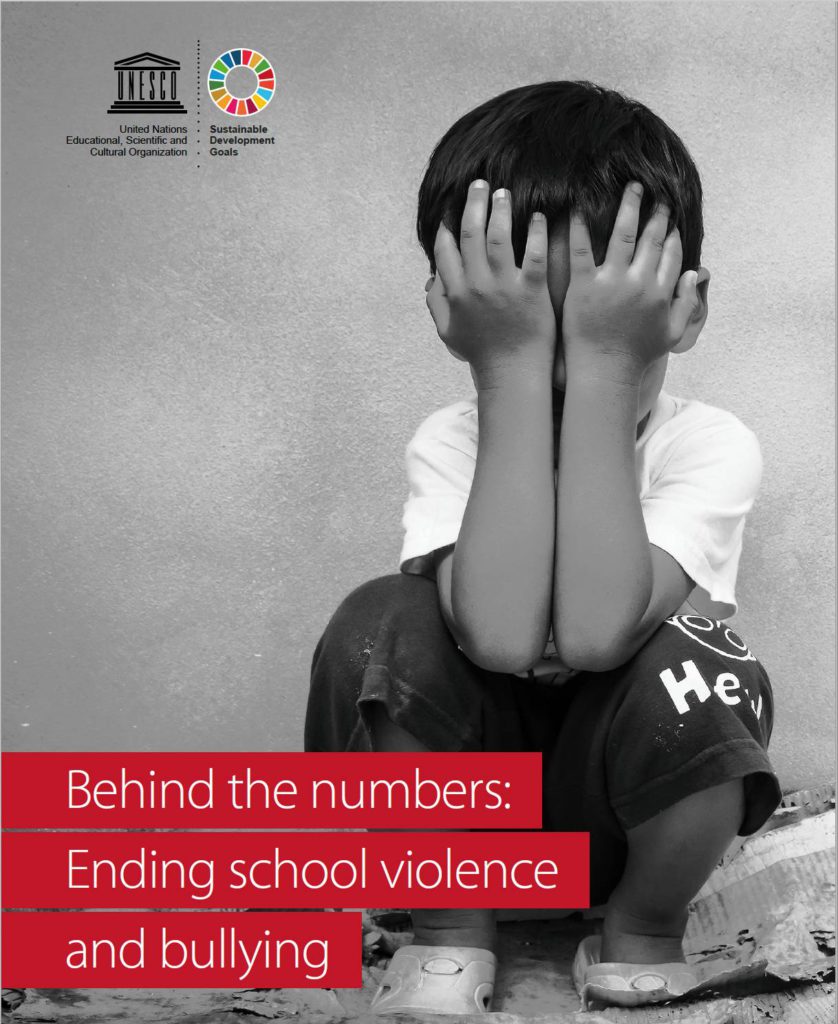
More Reports
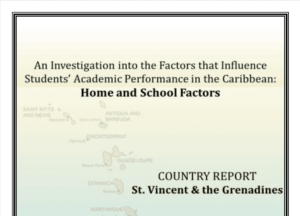
An Investigation into the Factors that Influence Students’ Academic Performance: Home and School Factors – ST. VINCENT AND THE GRENADINES COUNTRY REPORT
Educational practices that originated during the colonial era, when Caribbean nations were under European rule, persist today despite their misalignment with the modern Caribbean context. Recently, there has been a movement towards evidence-informed policymaking to address these outdated practices. An evidence-based approach is crucial for small island developing states with limited resources, such as St Vincent and the Grenadines. This study is a partial response to the growing demand for empirical data to support policymaking. It aims to provide insights into the home and school factors influencing students’ academic progress in St Vincent and the Grenadines. Phase One of the study, conducted in 2017, received funding from the Board of Graduate Studies, The University of the West Indies, while Phase Two, carried out in 2024, was funded by the United States Agency for International Development (USAID).
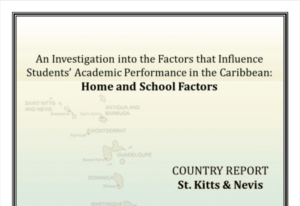
An Investigation into the Factors that Influence Students’ Academic Performance: Home and School Factors – ST KITTS AND NEVIS COUNTRY REPORT
Educational practices that originated during the colonial era, when Caribbean nations were under European rule, persist today despite their misalignment with the modern Caribbean context. Recently, there has been a movement towards evidence-informed policymaking to address these outdated practices. An evidence-based approach is crucial for small island developing states with limited resources, such as St. Kitts and Nevis. This study is a partial response to the growing demand for empirical data to support policymaking. It aims to provide insights into the home and school factors influencing students’ academic progress in St. Kitts and Nevis. Phase One of the study, conducted in 2017, received funding from the Board of Graduate Studies, The University of the West Indies, while Phase Two, carried out in 2022, was funded by the United States Agency for International Development (USAID).
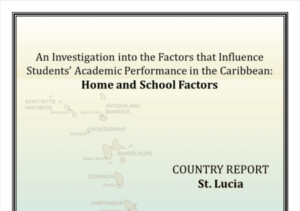
An Investigation into the Factors that Influence Students’ Academic Performance: Home and School Factors – ST. LUCIA COUNTRY REPORT
Educational practices that originated during the colonial era, when Caribbean nations were under European rule, persist today despite their misalignment with the modern Caribbean context. Recently, there has been a movement towards evidence-informed policymaking to address these outdated practices. An evidence-based approach is crucial for small island developing states with limited resources, such as St. Lucia. This study is a partial response to the growing demand for empirical data to support policymaking. This report aims to provide insights into the home and school factors influencing students’ academic progress in St. Lucia. The study was conducted in 2022 and was funded by the United States Agency for International Development (USAID).
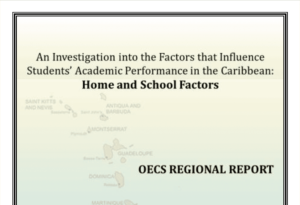
A Pre- and Post-COVID-19 Pandemic Comparison of Home and School Factors that Influence Students’ Academic Performance – OECS Regional Report
Educational practices that are remnants of education systems put in place when Caribbean nations were colonies of European countries still exist today despite the unsuitability of these practices in the modern Caribbean context. Recently, there has been a push for evidence-informed policymaking to address this issue. An evidence-based approach is essential for small island developing states with limited resources. This study is a partial response to the increased demand for empirical data that can support policymaking in the Eastern Caribbean. It aims to provide information to enhance understanding of the home and school factors affecting students’ academic progress in the region.
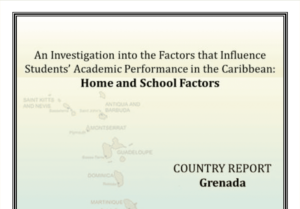
An Investigation into the Factors that Influence Students’ Academic Performance: Home and School Factors – GRENADA COUNTRY REPORT
Educational practices that originated during the colonial era, when Caribbean nations were under European rule, persist today despite their misalignment with the modern Caribbean context. Recently, there has been a movement towards evidence-informed policymaking to address these outdated practices. An evidence-based approach is crucial for small island developing states with limited resources, such as Grenada. This study is a partial response to the growing demand for empirical data to support policymaking. It aims to provide insights into the home and school factors influencing students’ academic progress in Grenada. Phase One of the study, conducted in 2017, received funding from the Board of Graduate Studies, The University of the West Indies, while Phase Two, carried out in 2022, was funded by the United States Agency for International Development (USAID).
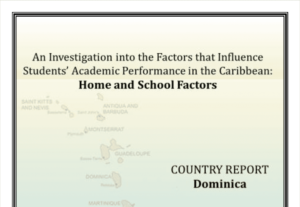
An Investigation into the Factors that Influence Students’ Academic Performance: Home and School Factors – DOMINICA COUNTRY REPORT
Educational practices that originated during the colonial era, when Caribbean nations were under European rule, persist today despite their misalignment with the modern Caribbean context. Recently, there has been a movement towards evidence-informed policymaking to address these outdated practices. An evidence-based approach is crucial for small island developing states with limited resources, such as Dominica. This study is a partial response to the growing demand for empirical data to support policymaking. This report aims to provide insights into the home and school factors influencing students’ academic progress in Dominica. The study was conducted in 2022 and was funded by the United States Agency for International Development (USAID).
